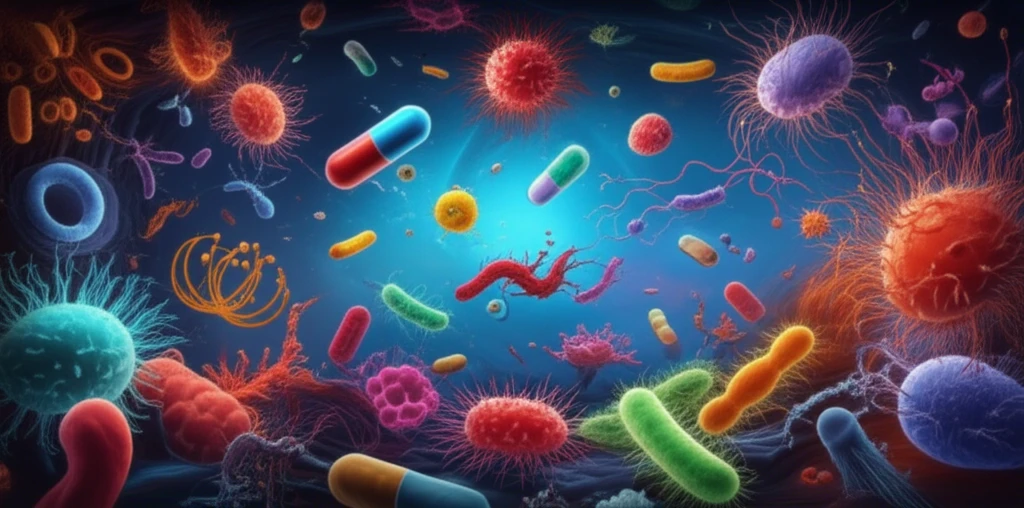
Antibiotics and Your Microbiome: What You Need to Know
"Discover the surprising long-term effects of antibiotics on your gut and oral health, and what you can do to protect your microbiome."
Our bodies are home to trillions of microorganisms, including bacteria, viruses, fungi, and archaea, collectively known as the microbiome. This complex ecosystem plays a crucial role in our overall health, influencing everything from digestion and immunity to mental well-being. Maintaining a balanced microbiome is essential for preventing disease and promoting optimal function.
Antibiotics, while life-saving in combating bacterial infections, can significantly disrupt this delicate balance. These medications don't discriminate between harmful and beneficial bacteria, often wiping out large portions of the microbiome. This disruption can have both short-term and long-term consequences, impacting our health in various ways.
Recent research has shed light on the specific effects of long-term antibiotic therapy on the human oral and fecal viromes – the viral component of the microbiome. Understanding these effects is crucial for making informed decisions about antibiotic use and taking proactive steps to protect our microbial health. This article will explore the key findings of this research and offer practical advice for supporting your microbiome.
How Do Antibiotics Impact Your Oral and Gut Viromes?

A groundbreaking study published in PLOS One investigated the impact of long-term antibiotic therapy on the viral communities in the human mouth and gut. Researchers collected saliva and fecal samples from subjects undergoing a six-week course of intravenous antibiotics, comparing them to a control group that received no antibiotics. The study aimed to understand how antibiotics alter the viral landscape and whether these changes could contribute to antibiotic resistance.
- Oral Virome Diversity: Antibiotics were associated with a surprising increase in papillomaviruses in the oral cavity, suggesting a potential link between antibiotic use and viral activity.
- Fecal Virome Shifts: While antibiotics didn't significantly impact the overall diversity of the gut virome, they did lead to an expansion of genes associated with antibiotic resistance.
- Bacterial Community Changes: The study also observed characteristic changes in the bacterial communities of the mouth and gut in response to antibiotics, further highlighting the interconnectedness of the microbiome.
Protecting Your Microbiome: Practical Steps You Can Take
While antibiotics can have disruptive effects, there are several steps you can take to mitigate the damage and support a healthy microbiome:<ul> <li><b>Probiotics:</b> Consider taking a probiotic supplement during and after antibiotic treatment to help replenish beneficial bacteria. Look for a diverse blend of strains known to support gut health.</li> <li><b>Diet:</b> Focus on a diet rich in fiber, fruits, vegetables, and fermented foods. These foods provide nourishment for beneficial bacteria and promote a balanced microbiome.</li> <li><b>Limit Processed Foods and Sugar:</b> Minimize your intake of processed foods, sugary drinks, and artificial sweeteners, as these can negatively impact the gut microbiome.</li> <li><b>Talk to Your Doctor:</b> Discuss the potential risks and benefits of antibiotics with your doctor and explore alternative treatment options when appropriate.</li> </ul>By taking proactive steps to protect your microbiome, you can minimize the potential long-term effects of antibiotics and support your overall health and well-being.
